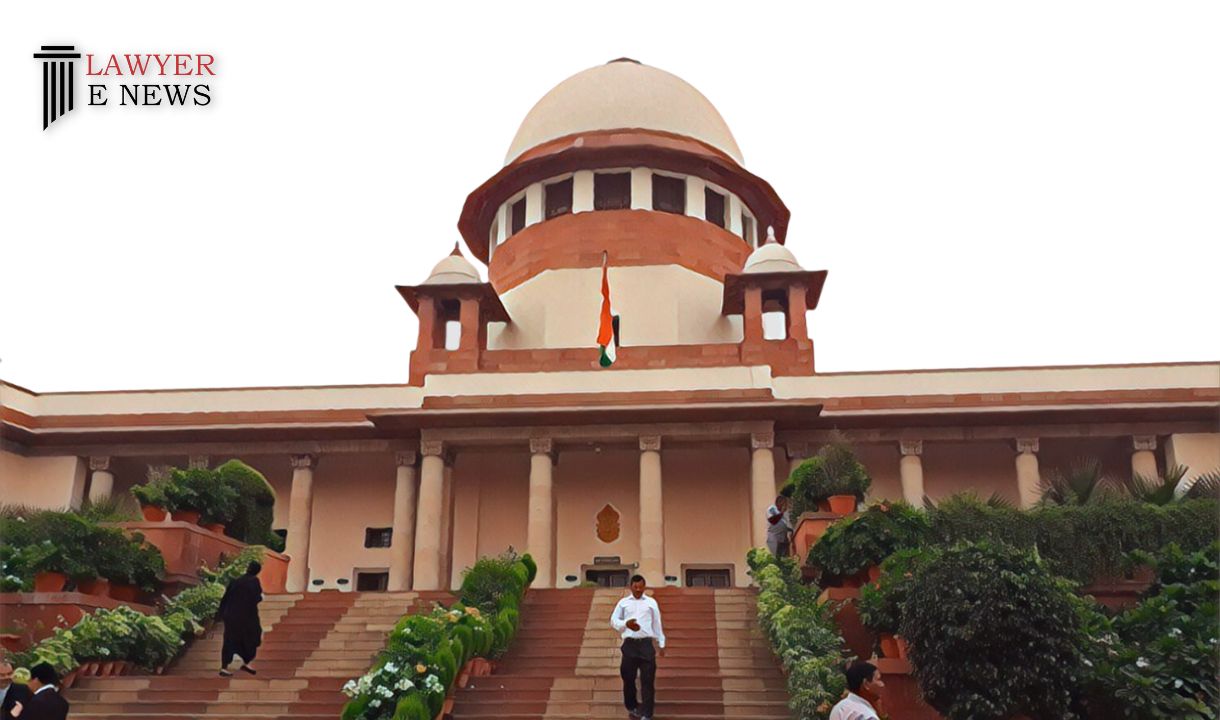-
by Admin
15 February 2026 5:35 AM



On 4 May 2023, Supreme Court held that due to the prima facie material indicating the appellant's regular participation in the crime and the existence of other cases against him, bail could not be granted at this stage. The court emphasized the need for sound discretion guided by law and the limited scope of examining evidence and merits during the bail application process.
Supreme Court of India has rejected the bail application of Atulbhai Vithalbhai Bhanderi, who is accused in a case involving allegations of intimidation, threats, and extortion. The decision was made by a bench comprising Justice Ahsanuddin Amanullah and Justice Ajay Rastogi.
The case, which falls under the Gujarat Control of Terrorism and Organized Crime Act, 2015 (GCTOC Act) and the Indian Penal Code, 1860 (IPC), pertains to a criminal syndicate involved in land-grabbing activities and extorting money from individuals. The appellant, along with other accused individuals, is accused of playing a role in intimidating the victim and threatening witnesses to comply with their extortion demands.
The appellant had filed a bail application, challenging the dismissal of his previous bail plea by the High Court of Gujarat. The appellant's counsel argued that the sections under which the FIR was lodged did not indicate his involvement in any organized crime. They contended that without a basis, he had been made an accused in the present case.
However, the respondent-state, represented by the learned Additional Solicitor General of India, Mr. S. V. Raju, opposed the bail application. They presented evidence suggesting that the appellant had a close association with the main accused and had been involved in pressurizing authorities and threatening witnesses to cancel land deals. The respondent-state also highlighted the alleged facilitation of meetings and extortion activities by the appellant.
After carefully examining the arguments presented by both sides, the Supreme Court, in its observation, held that due to the prima facie material indicating the appellant's regular participation in the crime and the existence of other cases against him, bail could not be granted at this stage. The court emphasized the need for sound discretion guided by law and the limited scope of examining evidence and merits during the bail application process.
The court also addressed the issue of parity in granting bail, stating that mere similarity of circumstances, such as weapon possession, was insufficient to establish a case for bail based on parity. The individual role of the accused and their position in relation to the incident and victims were deemed of utmost importance.
However, the court acknowledged the respondent-state's request to consider the bail application after the examination of protected witnesses. It granted a period of six months for recording statements of these witnesses, allowing the appellant to renew their bail application after their examination.
4 May 2023
ATULBHAI VITHALBHAI BHANDERI vs STATE OF GUJARAT
